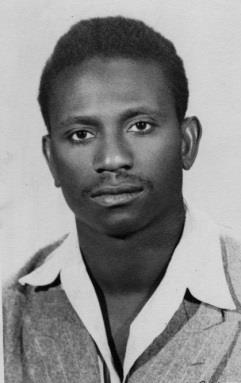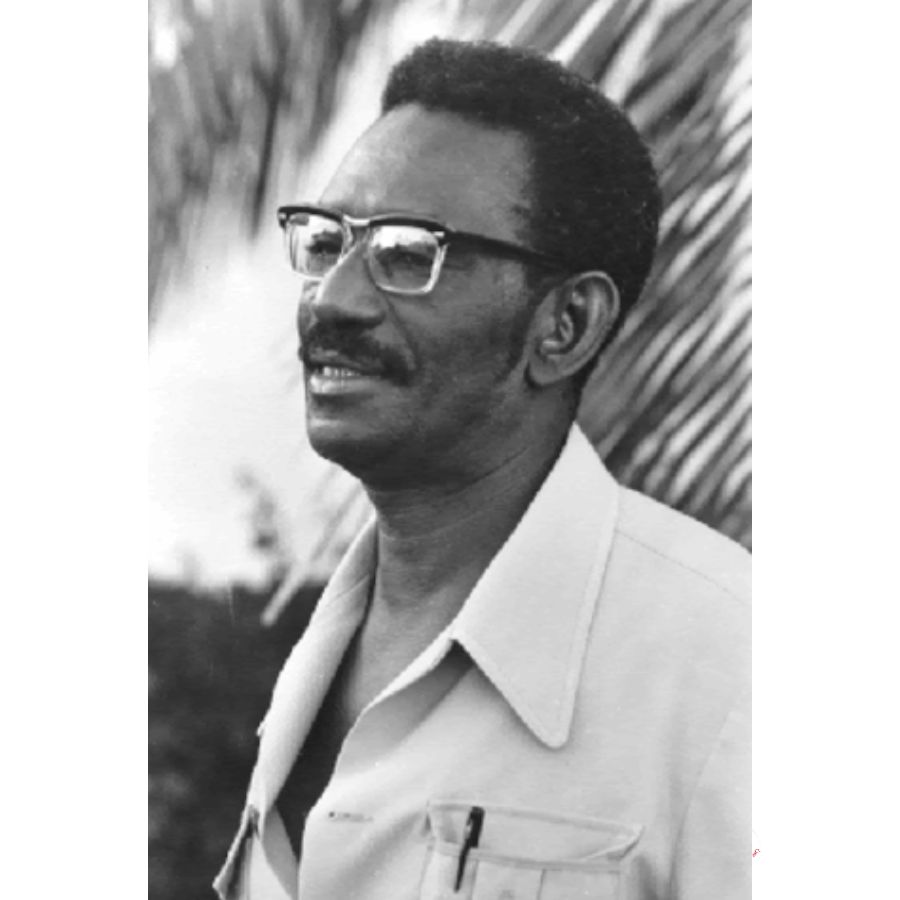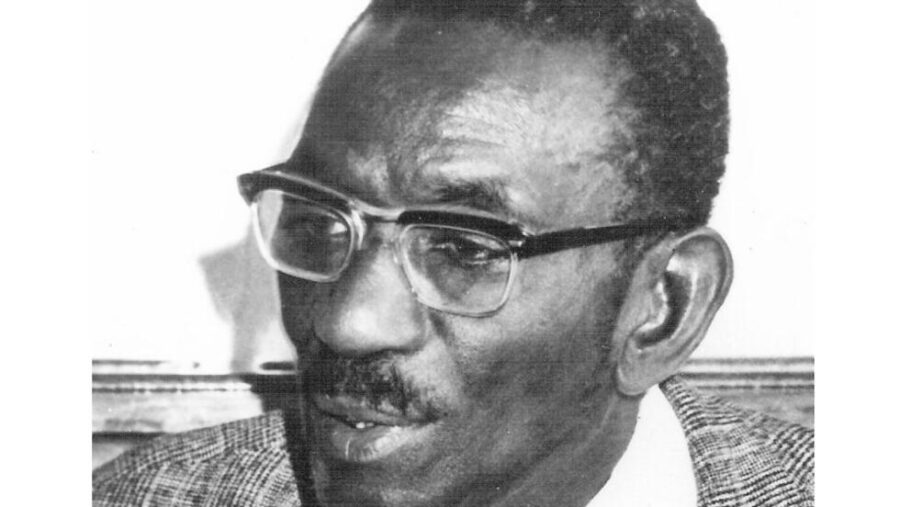It’s time to honor the remarkable legacy of Cheikh Anta Diop, a pioneer in African history whose groundbreaking research and scholarship have significantly shaped our understanding of Africa’s rich cultural and intellectual heritage. This blog post will probe into the life and work of this esteemed scholar, highlighting his contributions to the field of African history and his enduring impact on generations of scholars and students.

Life and Early Years
Childhood and Education
Years before Cheikh Anta Diop became a pioneering figure in African history, he was born on December 29, 1923, in Diourbel, Senegal. Diop’s early years were marked by a thirst for knowledge and a keen interest in his African heritage. He excelled academically from a young age and was known for his curiosity and intellect.
Formative Influences and Experiences
Years later, Diop’s formative influences and experiences would shape his future path significantly. He studied in Paris, where he examined into Egyptology and African history, laying the foundation for his groundbreaking research on the African origins of civilization. Diop was deeply influenced by the works of scholars like J.A. Rogers and C.A. Diop, who had also challenged prevailing Eurocentric views of history.
Experiences such as encountering racism and discrimination during his studies in Paris further fueled Diop’s resolve to challenge conventional narratives and promote a more inclusive and accurate portrayal of African history and culture.
Academic Pursuits and Contributions
Doctoral Research and Thesis
The academic journey of Cheikh Anta Diop began with his doctoral research at the University of Paris, where he studied physics and philosophy. However, his passion for African history and culture led him to research deeper into the subject during his doctoral studies. In 1960, he obtained his doctorate in African history, becoming the first African to achieve this feat.
Pioneering Work in African History and Culture
Cheikh Anta Diop’s pioneering work in African history and culture revolutionized the way we perceive the ancient civilizations of Africa. Through his research, he challenged Eurocentric views of African history and provided a strong foundation for the study of African civilizations. Diop’s groundbreaking thesis on the cultural unity of Africa continues to influence scholars and researchers in the field.
His meticulous examination of ancient African civilizations, such as Egypt, and his emphasis on the role of Africa in world history, have cemented his legacy as a trailblazer in the field of African studies.
Challenges and Controversies Faced
Despite his groundbreaking contributions, Cheikh Anta Diop faced numerous challenges and controversies throughout his academic career. His Afrocentric views and criticism of established historical narratives often sparked debates and opposition from mainstream academia. Diop’s work was sometimes dismissed or misrepresented, leading to controversies that overshadowed his contributions to the field.

Key Theories and Ideas
The Two Cradle Theory
Not only was Cheikh Anta Diop a remarkable historian, but he was also known for his groundbreaking theories and ideas that revolutionized the study of African history. One of his most famous concepts is the Two Cradle Theory, which posits that civilization has its roots in Africa and that Egypt, rather than Mesopotamia or Greece, was the true cradle of civilization.
Afrocentricity and African Diasporic Identity
Cradle Moreover, Diop’s work on Afrocentricity and African Diasporic Identity has had a profound impact on how people of African descent view themselves and their place in the world. He argued for the importance of centering African perspectives in the study of history and culture, challenging Eurocentric narratives that marginalized or erased African contributions to world civilization.
To further elaborate on Diop’s ideas, Afrocentricity emphasizes the need for African people to reclaim their history and heritage, to counter the negative stereotypes and narratives that have been perpetuated by colonial powers. By embracing an Afrocentric perspective, individuals of African descent can build a stronger sense of identity and pride in their cultural heritage.
Critiques of Eurocentric Historiography
Historiography Diop was not afraid to challenge the dominant Eurocentric historiography that had long ignored or distorted the contributions of African civilizations. He critiqued the biases and inaccuracies present in Western accounts of history, advocating for a more balanced and inclusive approach that recognized the achievements of all cultures.
African In his critiques of Eurocentric historiography, Diop paved the way for a more nuanced understanding of the past, one that acknowledges the interconnectedness of human civilizations and the mutual influence they had on each other.
Major Works and Publications
« Nations nègres et culture » and Its Impact
Despite facing criticisms and challenges from the academic world, Cheikh Anta Diop’s groundbreaking work « Nations nègres et culture » made a significant impact on redefining the narrative of African civilizations. In this seminal book, Diop challenged the Eurocentric views of African history, arguing for the advanced cultural and scientific achievements of ancient African civilizations.
His work highlighted the importance of understanding Africa‘s contributions to world history and the need to recognize the intellectual capabilities of African societies throughout the ages.
« The African Origin of Humanity » and Its Significance
African civilization dates back thousands of years, and in his book « The African Origin of Humanity, » Diop explores into the rich history of the continent. He emphasizes the contributions of Africa to humanity’s development, from the origins of civilization to the advancements in science, technology, and culture.
Diop’s thesis in « The African Origin of Humanity » challenged the prevailing views of his time and paved the way for a renaissance in the study of African history and culture. By emphasizing Africa’s central role in human history, Diop’s work continues to inspire scholars and enthusiasts to explore deeper into the continent’s rich heritage.
Other Notable Works and Their Contributions
African heritage and contributions to world history were recurring themes in many of Cheikh Anta Diop’s works. His extensive research and writings on topics such as ancient Egyptian civilization, African languages, and the cultural identity of African peoples have had a lasting impact on the study of African history and anthropology.
Legacy and Influence
Once again, we investigate into the lasting impact and enduring influence of Cheikh Anta Diop, whose work continues to shape African studies and inspire generations of scholars.
Impact on African Studies and Historiography
African history and studies were profoundly transformed by Cheikh Anta Diop’s groundbreaking research that challenged Eurocentric views and offered a reclamation of Africa’s glorious past. Diop’s emphasis on the importance of African culture and civilizations in shaping world history has led to a reevaluation of historical narratives and the recognition of Africa’s significant contributions to humanity.
Inspiration to Future Generations of Scholars
Generations of scholars have found inspiration in the life and work of Cheikh Anta Diop. His dedication to challenging academic orthodoxies and advocating for a more inclusive and representative history has sparked a renewed interest in understanding Africa’s rich and complex past. Diop’s courage in defending his research and promoting a vision of an empowered Africa continues to resonate with scholars striving to decolonize academia and amplify diverse voices.
The scholarly legacy of Cheikh Anta Diop serves as a beacon of hope and empowerment for future generations of African researchers and intellectuals. His interdisciplinary approach, combining history, anthropology, and science, has paved the way for innovative research methodologies that prioritize African perspectives and challenge dominant narratives.
Criticisms and Controversies Surrounding His Legacy
One aspect of Cheikh Anta Diop’s legacy that generates debate is the extent to which his theories and findings are accepted within academic circles. Some critics argue that Diop’s Afrocentric perspective may oversimplify complex historical realities and ignore nuances in favor of a more assertive African identity. Despite the controversy, Diop’s work continues to inspire critical dialogue and further research into African history and identity.
Criticisms aside, Cheikh Anta Diop remains a towering figure in African historiography, whose pioneering research and unwavering commitment to challenging conventional narratives have left an indelible mark on the study of Africa’s past and present.
Personal Life and Activism
Many aspects of Cheikh Anta Diop’s personal life and activism greatly influenced his work as a pioneering scholar in African history and culture.
Marriage and Family Life
An important aspect of Diop’s personal life was his marriage to Louise Marie Senghor, a cousin of the first President of Senegal, Léopold Sédar Senghor. The union of Diop and Louise Marie not only brought together two prominent Senegalese families but also created a supportive partnership that allowed Diop to pursue his research and activism with dedicated focus and resilience.
Political Activism and Pan-Africanism
On the political front, Cheikh Anta Diop was a staunch advocate for Pan-Africanism and the decolonization of African nations. He believed in the unity of African peoples and worked tirelessly to challenge colonial narratives that undermined the history and achievements of African civilizations. Diop was a vocal critic of Western academic institutions that perpetuated Eurocentric views of Africa and actively promoted the reclamation of African heritage and identity.
Political activism was at the core of Diop’s work, as he not only sought to uncover and disseminate the true history of Africa but also to mobilize African nations towards social and political liberation. His advocacy for Pan-African unity and self-determination inspired generations of activists and scholars to continue his legacy of challenging colonial legacies and celebrating the richness of African culture and history.
Later Life and Reflections
Activism was a lifelong pursuit for Cheikh Anta Diop, who continued his work well into his later years, despite facing numerous challenges and obstacles. Diop’s commitment to his beliefs and his unwavering dedication to the advancement of African studies left a lasting impact on the academic and political landscape of the African continent and the diaspora.
Later in life, Cheikh Anta Diop reflected on the importance of preserving and promoting African heritage and knowledge, emphasizing the need for African peoples to take ownership of their history and future. His intellectual contributions and political activism continue to inspire and resonate with scholars, activists, and anyone who values the celebration and recognition of African history and culture.
Summing up
So, Cheikh Anta Diop’s contributions to African history and culture are truly immeasurable. As a pioneer in the field, he dedicated his life to challenging Eurocentric views and promoting a more accurate and inclusive understanding of African civilizations. His work continues to inspire scholars, activists, and individuals around the world to celebrate and embrace the rich history and heritage of the African continent.
FAQ
Q: Who is Cheikh Anta Diop?
A: Cheikh Anta Diop was a pioneer in African history, known for his groundbreaking research and contributions to the study of African civilization.
Q: What were some of Cheikh Anta Diop’s major accomplishments?
A: Cheikh Anta Diop made significant contributions to our understanding of the history and culture of ancient African civilizations, particularly through his work on the African origins of civilization.
Q: How did Cheikh Anta Diop impact the field of African history?
A: Cheikh Anta Diop’s work challenged Eurocentric views of African history and culture, highlighting the achievements and contributions of African civilizations to world history.
Q: What is Cheikh Anta Diop’s legacy?
A: Cheikh Anta Diop’s legacy includes inspiring generations of scholars to study and celebrate the rich history and culture of Africa, as well as advocating for the decolonization of African education and knowledge systems.
Q: How is Cheikh Anta Diop commemorated today?
A: Cheikh Anta Diop is commemorated through ongoing research, conferences, and events dedicated to the study and celebration of African history and culture, ensuring that his legacy continues to inspire future generations.
See also our article : Marcus Garvey’s Legacy – A Motivational Quote For Black Empowerment










